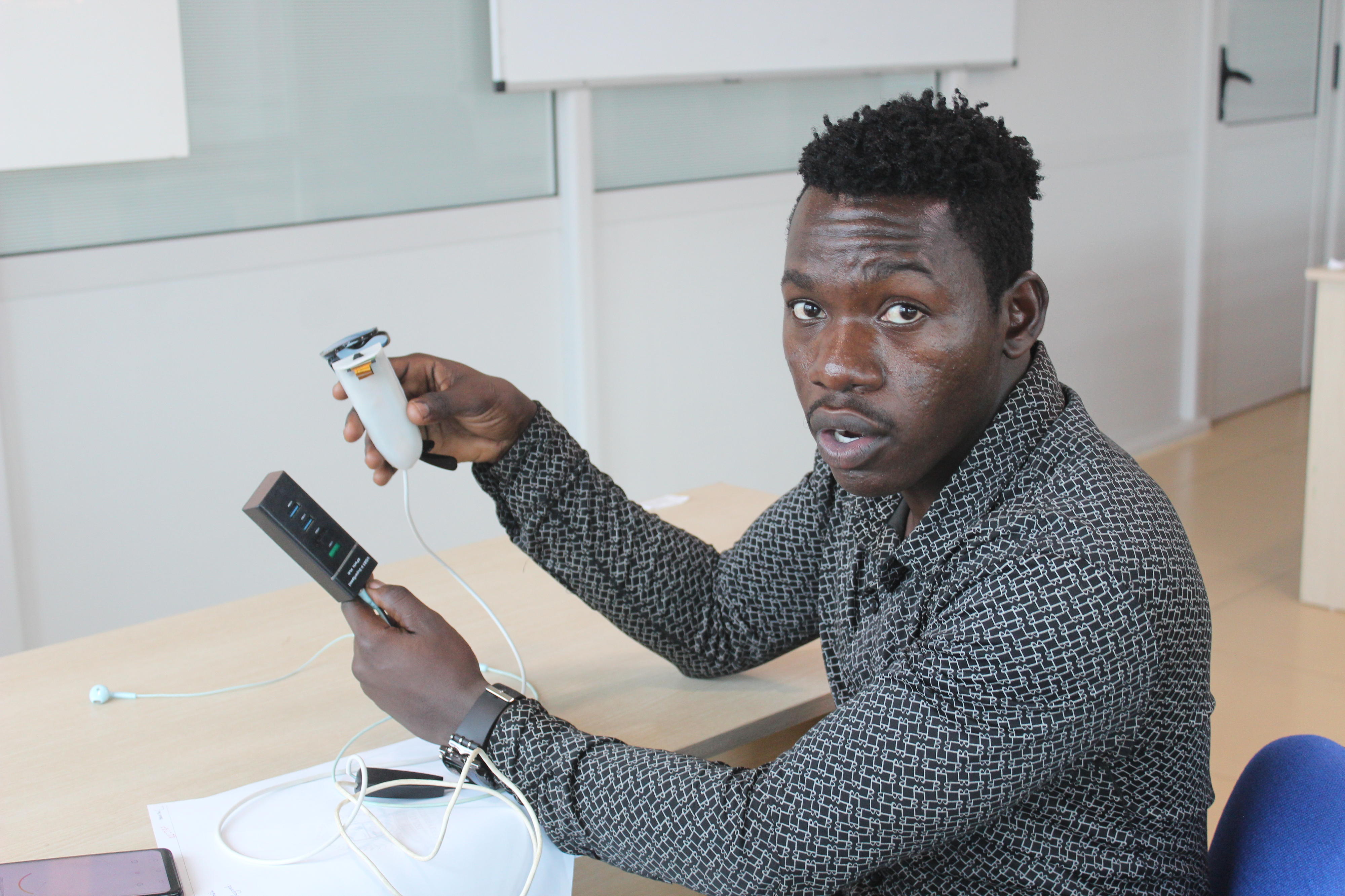Father of six counsels married men on career development

Wakabaza on his graduation day. Photo by JANE NAFULA
What you need to know:
He was among the 396 paramedical and nursing students who graduated in various disciplines at International Paramedical and Nursing Institute (IPI) –Maya in Wakiso District recently (April 21)
Aloysius Wagabaza, 38, a father of six children and a husband to Ms Animu Nawayigo and Swabrah Nabikolo has advised married men never to give up on advancing their career.
Wagabaza who hails from Buwala Village, Butakulwe Parish in Butayanja Sub County, Jinja District told this publication that married people can still juggle between family affairs and studies to remain competitive in the job market.
He was among the 396 paramedical and nursing students who graduated in various disciplines at International Paramedical and Nursing Institute (IPI) –Maya in Wakiso District recently (April 21).
“Whereas juggling between the two may not seem like taking a walk in the park, it is something that you can give a try if you are to advance your career and remain relevant and competitive in the current job market,” Wagabana who now holds a Diploma in Laboratory Technology said.
He said that before he upgraded, the health facility where he worked as a laboratory assistant in an ill-equipped laboratory where he usually lost clients to competitors.
“By that time, I only had a certificate in laboratory Technology and the places that could employ me were those that were still struggling and lacked most of the laboratory equipment. I would only carry out simple tests like malaria tests and taking blood pressure,” Mr Wagaba said.
Ms Damalie Kabejja, the former Manager of KPC COTEC Medical Company (KCMC), said whereas certificate laboratory officers may learn on the job, well qualified health workers tend to be in demand compared to those who are less qualified.
Ms. Kabejja acknowledged that in Uganda, a skills gap exists among some laboratory technicians and technologists.
“Someone can graduate but they cannot even do a simple malaria test. Some students do not get the chance to practice what they are studying while in the training institutions. You may be attached to a facility to be trained by a health worker attending to a huge number of patients and most times, you will not be able to learn because the person may not get time to guide you,” she said.
Dr Safinah Kisu Museene, the Commissioner for Health Education and Training Institutions in the Ministry of Education said that her ministry was aware of the skills gap that exists among different health professionals and had come up with an innovative way of bridging the gap.
“There are weaknesses we are observing in the training of health professionals and the ministry is not just looking on. When we identify such gaps, we work towards addressing them.
The ministry is now emphasizing a competence-based curriculum where we teach the skills that the students must learn practically. We provide theory and then attach students to clinical centres to put theory into practice, “Dr Museene said.




